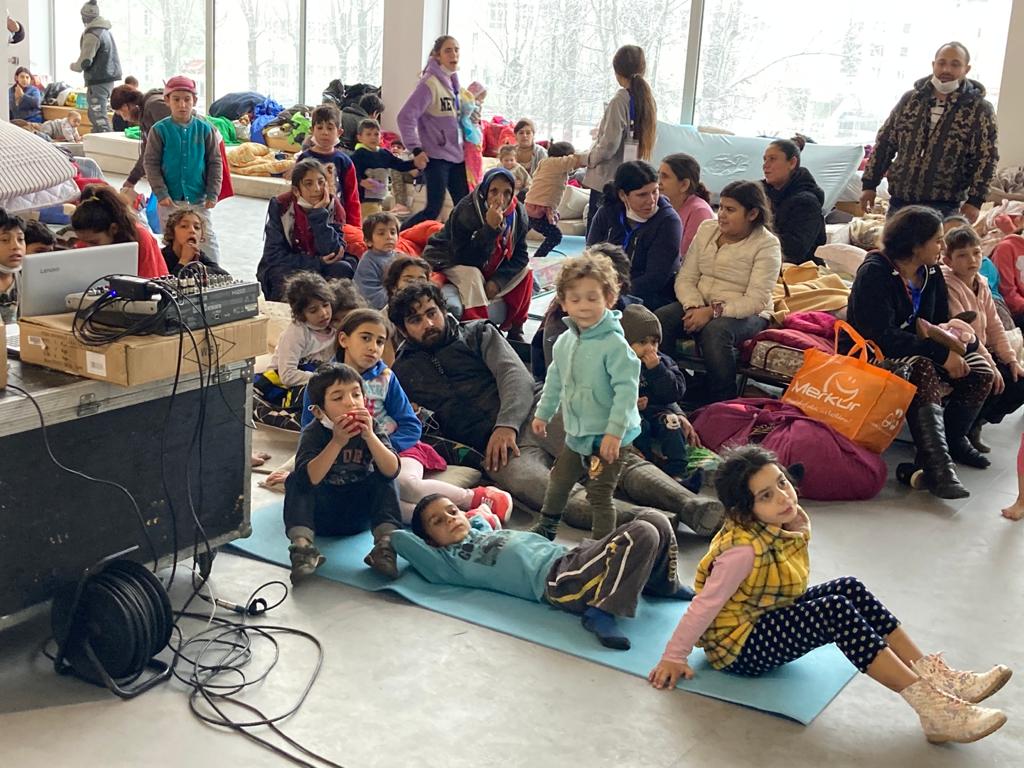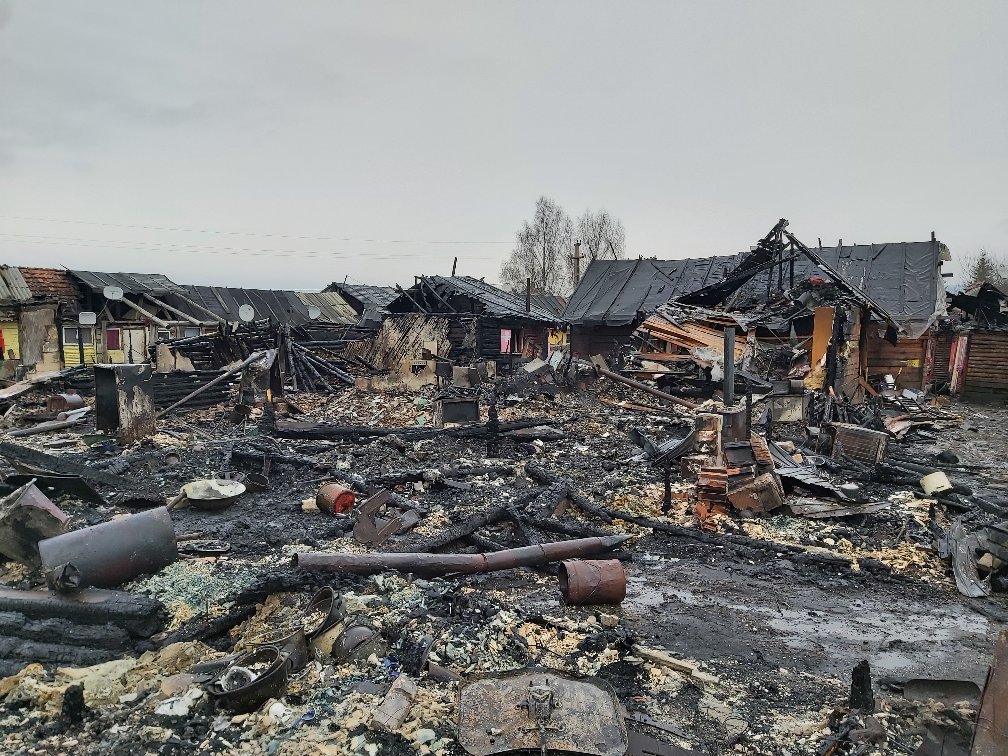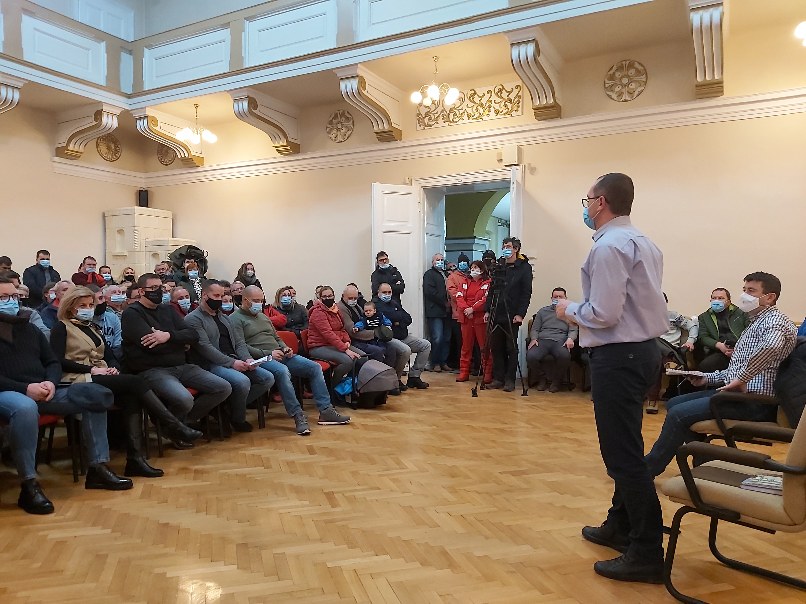A Hungarian sociologist from Slovakia, Ábel Ravasz, visited Csíkszereda (Miercurea Ciuc) last week to help city management solve their issue with the Roma community that lost their homes in a fire a couple of weeks ago. Ravasz was Slovakia’s Government Commissioner for Roma issues between 2016 and 2020; he has visited more than 300 Roma colonies over the last couple of years and offered to share his experience.
“The general experience is that some of the problems that have arisen in connection with the Roma have been exaggerated by the community,” Ábel Ravasz told Székelyhon.ro, a Hungarian newspaper in Romania. According to the sociologist, contrary to the beliefs of the local community, as far as Roma colonies go, the colony in Csíksomlyó (Şumuleu Ciuc) was an orderly one, one that can be liquidated with appropriate steps.
“The colony on Tavasz (Spring) Street [another Roma community in Csíkszereda – ed. note.] is more chaotic; their built environment suggests that a more difficult community lives there. In Slovakia, for example, you no longer see horses in gypsy communities; this was very surprising for me. To deal with them will be a bigger challenge because, unlike the other community, this one was created over the last decade as an artificial one on the outskirts of the city,” the expert on Roma issues told Székelyhon. As Ravasz explained, in Slovakia and Hungary, several similar segregated areas were created, but with no results: The inequities between the city population and the Roma communities increased instead of decreasing after the relocation.

Ravasz said it is a huge advantage that the mother tongue of the gypsies from Csíkszereda is Hungarian, meaning that they are part of the Hungarian community, and there are no language barriers between the city population and the Roma.
“I like it that city management is working on short-, medium- and long-term solutions. The short term is already working [the evacuated people have found a temporary shelter at Zsolt Erőss Arena – ed. note]. In the long run, the question is, where does the city want to see this approximately 1,000 people in 20 years: in colonies with higher living standards? Maybe they see the solution in integrating them into the majority? Or will they have their own neighborhood? The locals must answer these questions,” Ravasz said. In the medium term, in the next one to three years, the city must decide on the fate of those now living in Zsolt Erőss Arena and those that moved back to the colony. “The idea of container homes didn’t work out, as the case of Tavasz Street shows. The most important thing is to provide them the right conditions until long-term plans can be put into effect,” the expert pointed out.
Ábel Ravasz also told Székelyhon that the helpful attitude of the general population is rare in such humanitarian catastrophes; however, he also stressed that the only solution is to find a place for the community. According to the expert, not only the population should decide about the new location of the gypsies — city management should also have a say. “The city leaders are elected to make decisions for the city. […] There should be a constant dialogue with the residents about what is bothering them. If leaders could not act in such a situation, a state or a city would be paralyzed,” he explained.

The sociologist also mentioned several reasons as to why the community should not be placed outside the city. “I understand that this is a very easy answer because then there are no angry residents. However, it is guaranteed that the problem will return like a boomerang: The Roma are excluded from the traditional circuits, the two communities will no longer be used to each other, their deviant lifestyles will intensify, and bad role models will become the leaders of the community. Children will no longer go to school, drug use and prostitution will appear,” the expert listed the consequences, adding that in close communities, people also have more children. All of these may lead to a city where the Roma community represents a difficulty.
“If we raise their living standards, the people won’t have that many children, and it will be in their interest to keep these standards,” Ravasz told Székelyhon, adding that the city should help those who wish to break out of the colony in the hope of a better life.

“I also recommended surveying residents about their plans. In addition to helping those living in deep poverty, I think those who are just one step away from joining the city’s lower or middle class should be given every opportunity to do so. In this way, over the long run, many more can live up to the standards accepted by society with less effort,” the sociologist explained.
According to the expert, Roma communities are seen as passive communities that are living in learned helplessness. “So we need solutions in which they can also be involved in helping themselves – like in construction. In Slovakia, disadvantaged Roma receive microloans to build their own houses. They also receive a design and an engineer for the construction. At the end of the process, they become better people because they work for themselves — so we build houses and characters at the same time. We also have Roma civil guards: We chose respected people from the community and employ them as guards to improve public safety. We have such ambassadors in 250 settlements, and we have seen similar people in Csíkszereda as well,” sociologist Ábel Ravasz told Székelyhon.ro.
Title image: On January 7, 20 houses burned down in the fire. Photo: Székelyhon.ro/Attila Pinti